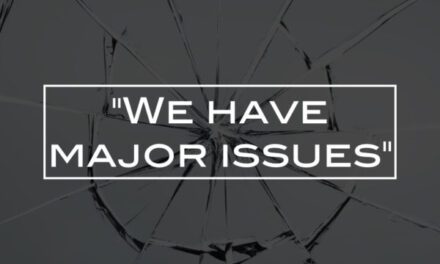By Jim Palmer
It is already February!?! My, how time flies. Just last month, we all enjoyed a “clean slate’, a ‘fresh start’, and a ‘new beginning’! Now, we’re in the midst of another year – and only 3 more months to Memorial Day, 5 more months to Independence Day, etc. Do you get the picture? Time marches on.
A common outcry from the man who juggles and struggles and hurries and scurries until he’s simply worn out is, “Where did the time go?” It takes careful examination of one’s life to answer that particular question, but suffice it to say, “Time does go.”
Time is mankind’s most precious commodity, and our most abused resource. We are often guilty of wasting this precious treasure only to look back and wish for more. An honest look lets us know how invaluable time really is: Time cannot be created, saved, or restored. It cannot be sped up or slowed down. Unlike other precious resources which can be made, stored up, and returned, time is given and in a moment is gone. The Bible describes our time on earth as a vapor, shadow, a flower that fades, swifter than a weaver’s shuttle, like a sigh, few days, short, and a little while. And, once it is gone, it does not return: For “we will surely die and become like water spilled on the ground which cannot be gathered up again” (2 Samuel 14:14). It is said that the words ‘On this minute hangs eternity’ are inscribed on a sundial in Harvard Yard. What a chilling and thrilling reminder that time is fleeting and valuable.
Since we are dealing with an incredibly valuable commodity, it only makes sense to examine its use and take appropriate steps to manage it as efficiently and use it as effectively as possible. Of course, I realize that we all waste time on occasion. Therefore, the issue before us is the excessive wasting of time. It has been said that time is opportunity. As such, let’s concentrate our focus on not wasting as much time as we used to or being aware that wasting too much time is akin to wasting opportunities – wasting our lives. The Psalmist requested that the Father “teach us to number our days, that we might apply our hearts to wisdom” (Psalm 90:12). While many live 70- 80 years (see Psalm 90:10), we know that we are not promised tomorrow (Proverbs 27:1, cf. James 4:15).
To drive home the point of how valuable a resource time is, consider if you were given the assignment of spending $50 an hour for the next 3months. And what if you had to spend the $50 during the hour in which it was given – or any unused portion disintegrates in your hands. What would you do with it? As a beginner, you might find many of the dollars wasting away at the end of each hour. However, with growth, maturity, and experience you would likely begin preparing for each hour. You might even make a plan for how you would spend the money—a budget, of sorts. Simply put, as a responsible person, you would likely try and develop a plan for good stewardship of the money that is coming (and going) through your hands each hour. Time is no different. We are blessed with time while it is here— and then, it is gone. Jesus himself said, “I must work the works of Him who sent Me while it is day; the night is coming when no man can work” (John 9:4). Time is steadily passing us by.
For centuries, mankind has pursued the fabled ‘fountain of youth’. We have searched out and purchased myriad remedies, elixirs, and pills that promised to extend one’s life. However, instead of focusing our attention on extending our lives here on earth, we would all be better served simply making the most of the time we do have. Paul Tucker, in his outstanding book on Christian Stewardship, asked some critical questions in his lesson on time management:
Am I seeking God’s kingdom first in this particular use of time?
Is this use of time good for the church?
Does this use of time rob me of something more vital I could receive by using it otherwise?
Am I a better qualified servant of Christ by using the time this way?
As you ponder this month’s thoughts on ‘time’, and as you consider formulating a plan for better use of the time with which you have been blessed, ask yourself the questions above. Ask yourself: Am I putting first things first? Take action and make this year your year of accomplishment by learning how to effectively and efficiently make the best use of your time.




